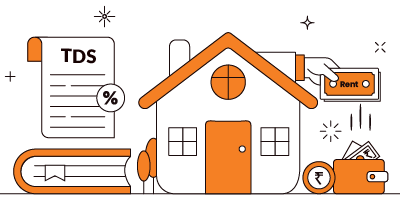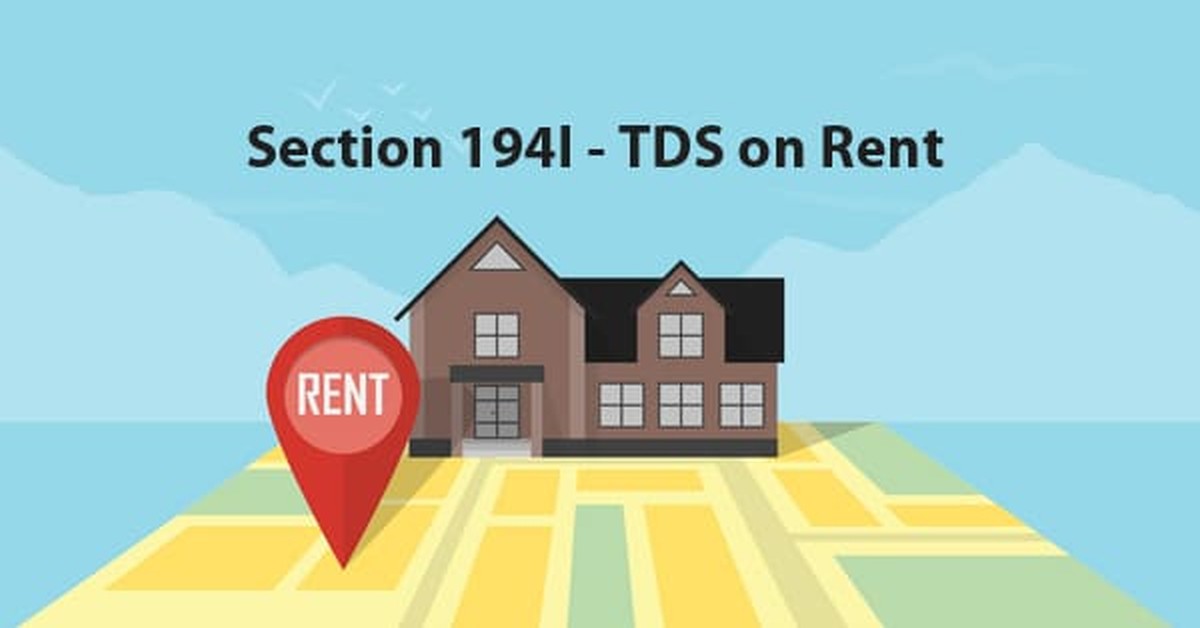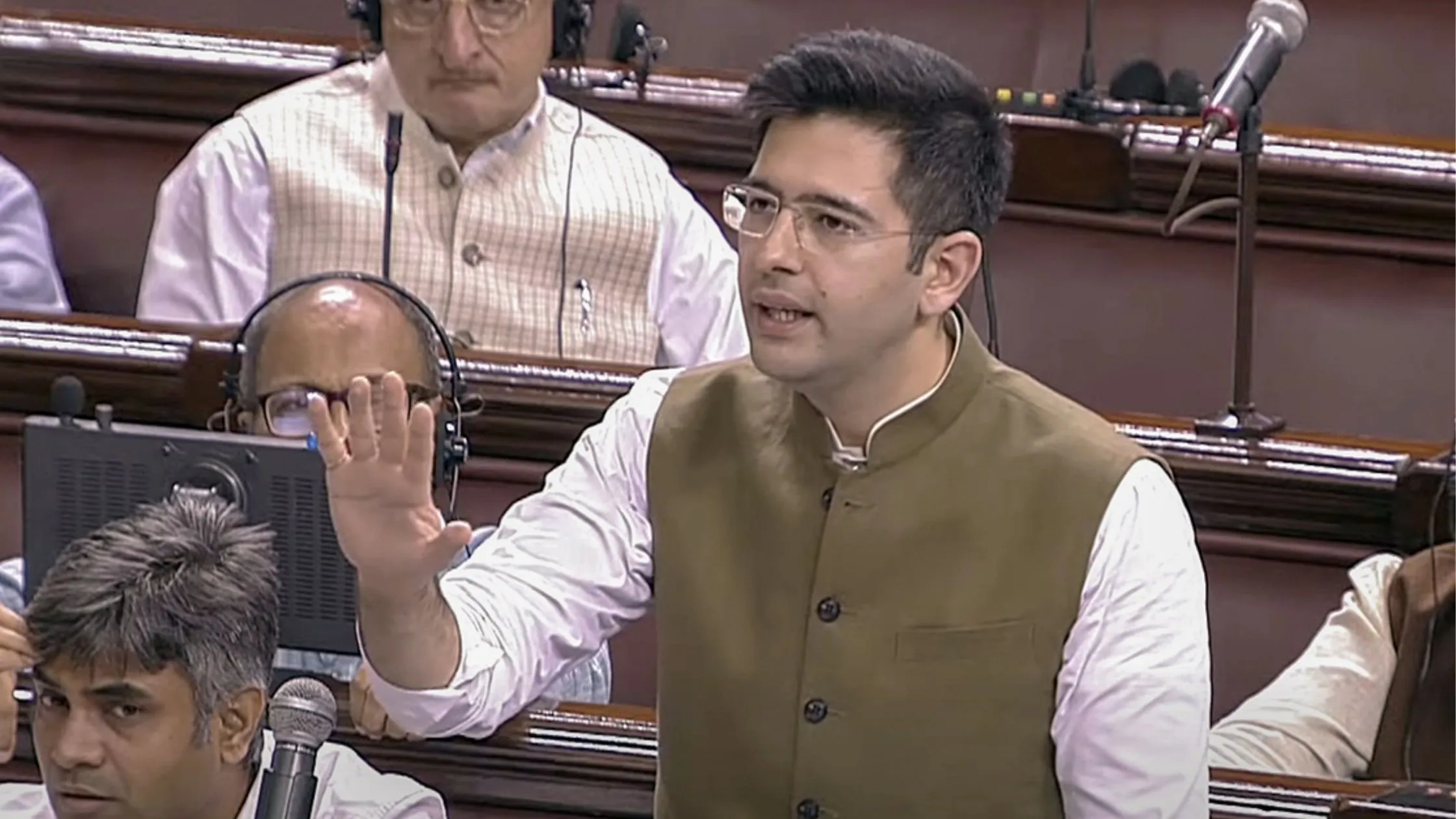Table of Content
▲
Understanding TDS on Rent under Section 1941 - Aquireacres
The TDS on rent is an income tax that is reduced from the money paid for the rent of the house. To put it in simple words, the TDS was introduced as a concept of collecting taxes on the same source of income. The person who received the income is generally liable to pay income tax. But the government with the help of TDS makes sure that the income tax is deducted in advance from the payments you make. Therefore, the recipient of the income gets the net amount (after deduction of the tax withheld at source).What is Section 1941?
Let's understand Section 1941 in simple words:- The person (not an individual or HUF) who has to pay the rent is responsible for deducting the tax at the source
- For the 2020-21 tax year, the tax to be paid for the home rental tax deduction is Rs. 2.40,000. However, the TDS cap for the 2018-19 fiscal year was Rs. 1.80,000
- Additionally, all individuals and/or HUFs responsible for tax audits are also subject to a tax deduction at source.

Why was the TDS u / s 194I introduced?
The TDS u/s 1941 was introduced for the following reasons:- The Finance Act of 1994 introduced Section 194I related to the deduction of income taxes.
- The government has also introduced a provision to cover rental income with tax deductions at the source.
What is the rent?
If you are learning about TDS about rent, it is also important that you understand what "rent" means. The rent is equal to any payment made under a lease/sublease/arrangement/lease/contract for the use of the following:- Land
- Building (including factory buildings)
- A plant. For example, an industrial or manufacturing facility
- Land appurtenant to any building (including factory building)
- Machinery
- Furniture
- Fittings
- Equipment like computer systems, tools, networks, and other infrastructure necessary for running a business
Who is all responsible for the TDS deduction under Section 1941?
- A person (not an individual or HUF) who pays some income to a resident for rent is subject to deducting the TDS on rent of more than Rs. 2.4 lakh
- If you belong to the Single or HUF category, you will have to face a 5% discount on TDS if the rent you pay exceeds Rs. 50000 per month
How to Calculate TDS on Rent?
For residential purposes: Let’s assume: Rahul stays with his family in a private rented apartment. He pays a rent of Rs. 60,000 per month to his landlord. Therefore, here is how the TDS will be calculated: 5% of Rs. 60,000 * 12 = Rs. 36,000- Note: Rahul is an individual hence the rent applicable to him will be only 5 percent.
When is TDS on House Rent Deducted?
If you are an individual and HUF is not responsible for the tax audit and you pay rent that exceeds Rs. 50,000 per month, the TDS will be deducted earlier in the following cases:- At the time the rent for the last month of the previous year or the last month of rent is deposited (if the property is emptied during the year)
- At the time of payment by check, cash, bill of exchange, or any other method of payment
What is the time limit for depositing TDS?
The time limit for filing a TDS is:- If you pay by or on behalf of the government: the same day (without using any challan form)
- In case of payment in any state other than the government: on or before 7 days from the end of the month in which the deduction is made, in which the tax is paid accompanied by the Challan income tax
- If the state amount was deposited or paid in March: April 30 or earlier
- In any other case: On or 7 days before the end of the month in which the discount is made.
What Would Be the Exemption Limit for TDS on Rent?
- Under Section 1941b, if the rent paid is less than Rs. 50,000 per month, these people and HUF not covered by the tax audit are not responsible for any deductions.
- or
- Under Section 1941, if the rent paid in a financial year is less than Rs. 2.40,000, people except for the people mentioned above cannot bear the TDS deduction
- · In the case of a film distributor (or a film viewer), the cinema building does not accept a lease or any other agreement of the same nature. Therefore, the payment made does not have the character of rent.
- A person who makes a payment to the government is not required to withhold tax at source under Section 194-I. Therefore, payments made to local or legal authorities are exempt from tax payable.
What Happens When TDS is Not Deducted on Rent?
- If the tenant does not deduct the TDS from the rent paid, he will have to pay 1% monthly interest to the government.
- or
- If the tenant deducts the TDS from the rent but does not pay it to the government, he will have to pay a tax of 1.5% per month.
- or
- In addition to the interest payable by the tenant, he must also pay the late registration fee mentioned in Section 234F. The fee is Rs. 200 per day or the number of TDS (whichever is less)










